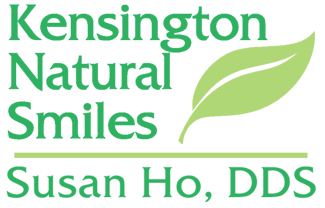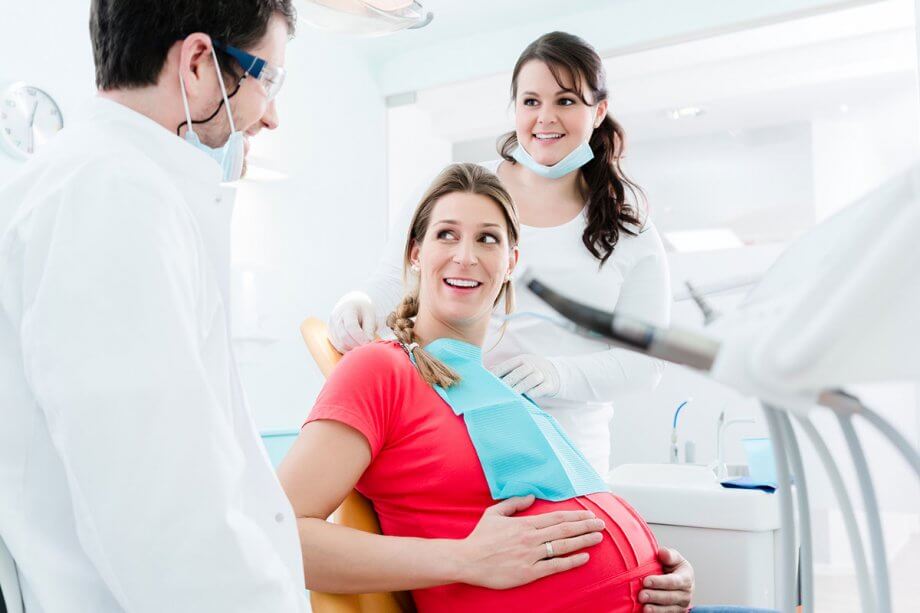A potential link between gum disease in pregnant women and premature birth with a low birth weight has been found in research. Estimates suggest that 18% of premature births may begin with periodontal disease. Proper dental treatment for the expectant mother can help to reduce the risk of premature births, while also helping to ensure that you don’t face any painful or potentially dangerous oral health problems.
Pre-Pregnancy Dental Health
If you have good hygiene habits prior to pregnancy you are less likely to have dental problems once you become pregnant. If you are planning on getting pregnant but also have elective dental procedures planned, make sure to set up a plan with your dentist. It is much more convenient to have elective procedures done before you get pregnant, and if you require dental treatment after you conceive, non-urgent procedures can usually be safely performed after the first trimester.
Dental Hygiene During Pregnancy
Preventative daily dental hygiene can help prevent any long-term complications. Brush your teeth at least twice a day with a fluoride toothpaste. If you are dealing with pregnancy gingivitis, and have gums that are swollen or tender, try switching to a brush with softer bristles and brush as gently as you can. The pressure used while brushing is not what cleanses your teeth, rather it is the brushing motions themselves that do the cleansing. Flossing gently once a day is important as well.
Get regular cleanings and ask your dentist about antimicrobial mouthwashes that can help with the increase of plaque. If you are dealing with vomiting or morning sickness, using a rinse of baking soda and water will help keep stomach acids from attacking your teeth and causing decay. A diet rich in calcium, B12, and vitamin C can also go a long way to keeping gums healthy. Remember that swollen and tender gums are normal during pregnancy, but if you have any concerns, make sure you contact your dentist.
A Healthy Diet Can Help!
While you may have considered a healthy diet for yourself and your baby, eating right can also help your baby’s teeth develop with the strongest foundation possible. You baby’s teeth begin to develop between the third and sixth month of your pregnancy, so making sure your food choices are smart and balanced can have an impact on their tooth development.
Make sure your diet includes a variety of healthy foods, such as fruits, vegetables, whole-grains and dairy products like milk, cheese, cottage cheese, and unsweetened yogurt. Attempt to limit as much as possible high sugar food and drinks. If you are having a sweet craving attempt to satiate that with natural sugars like fruits and all-natural fruit juices. Make sure to brush afterward, or at least rinse with plain water, to avoid any sugar build up that could lead to acids that can dissolve and damage teeth. Finally, ensure that you are drinking enough water every day, especially between meals.
Gum Problems
Hormones associated with pregnancy can make some women susceptible to gum problems. Gum inflammation, also known as gingivitis, is most likely to occur during the second trimester. Symptoms may include swelling and/or bleeding of the gums, particularly when brushing or flossing.
Pregnancy can also worsen any undiagnosed or untreated periodontal disease, which can lead to tooth loss, so having a pre-pregnancy dental relationship can help avoid any complications during pregnancy. During pregnancy, the gum problems that can come up are usually not due to increased plaque production, but due to increased hormone levels cause the body to respond to plaque differently.
Ready to Get Started?
Whether you are planning to get pregnant, or are already expecting your little miracle, we at Kensington Natural Smiles want to help you! Please give us a call at 301-933-3903 or email us at info@susanhodds.com today!

